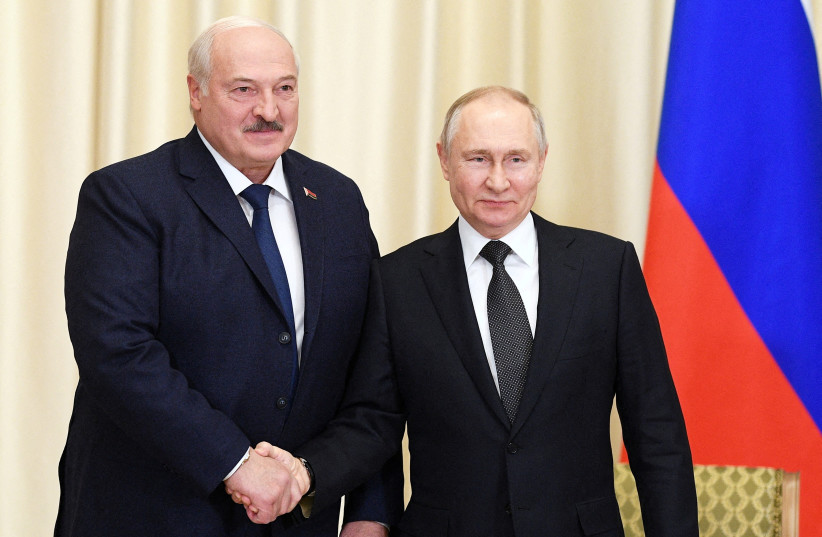Belarusian President Alexander Lukashenko, the Kremlin's staunchest ally in its war in Ukraine, said on Friday he was certain Russian tactical nuclear weapons deployed in his country would never be used.
Lukashenko and Russian President Vladimir Putin have acknowledged that some tactical weapons have arrived in Belarus and the remainder would be put in place by the end of the year.
The Belarusian president, in an address marking his ex-Soviet state's national day, said the stationing of the weapons in Belarus was "my firmest initiative".
"As we move along, we become more and more convinced that they (the weapons) must be stationed here, in Belarus, in a reliable place," Lukashenko told a gathering in a large hall in an online broadcast by the state BelTA news agency, with many present waving red and green national flags.
"I am certain that we will never have to use them while they are here. And no enemy will ever set foot on our land."

Lukashenko, like Russia, has repeatedly accused Western countries of trying to destroy his state and says the nuclear deployment is necessary to deter potential aggressors.
He said this month that some arms were in Belarus and at one point suggested he would not hesitate to use them if necessary, while adding that consultations with Russia would be needed.
Russia's Deputy Foreign Minister Sergei Ryabkov said on Friday the deployment did not violate the nuclear Non-Proliferation Treaty of 1968 as Russia retained control over the weapons. He told Russia's Tass news agency the deployment had been "forced" on Russia.
Wagner permitted to move operations to Belarus
Lukashenko allowed Putin to launch part of the February 2022 invasion of Ukraine from Belarus and has supported the war --brokering a deal last week to enable mercenary chief Yevgeny Prigozhin and his fighters to move operations to his country.
The head of neighbouring Poland's National Bureau of Security, Jacek Siewiera, said Wagner fighters relocating to Belarus could use migrants from Africa and other countries to destabilise central and eastern Europe.
Siewiera's comments to the Financial Times were a reference to clashes on the Belarusian border in 2021 when migrants tried to push their way into Poland, which accused Lukashenko of encouraging them to come to the country.
In power since 1994, he has also relied on Putin for support since using the security forces to crush demonstrations staged by protesters alleging he rigged his latest re-election in 2020.
In his remarks, he said the same Belarusian opposition politicians, now mostly in exile, who denounced the weapons deployment also criticised the construction of a Russian-built nuclear power station now operating in Belarus.
"I've said this before...that if you don' know what to do in this or that situation and your enemies are shouting and making a fuss, just do the opposite," he told the gathering. "If they shout that nuclear weapons are bad, just do the opposite."
